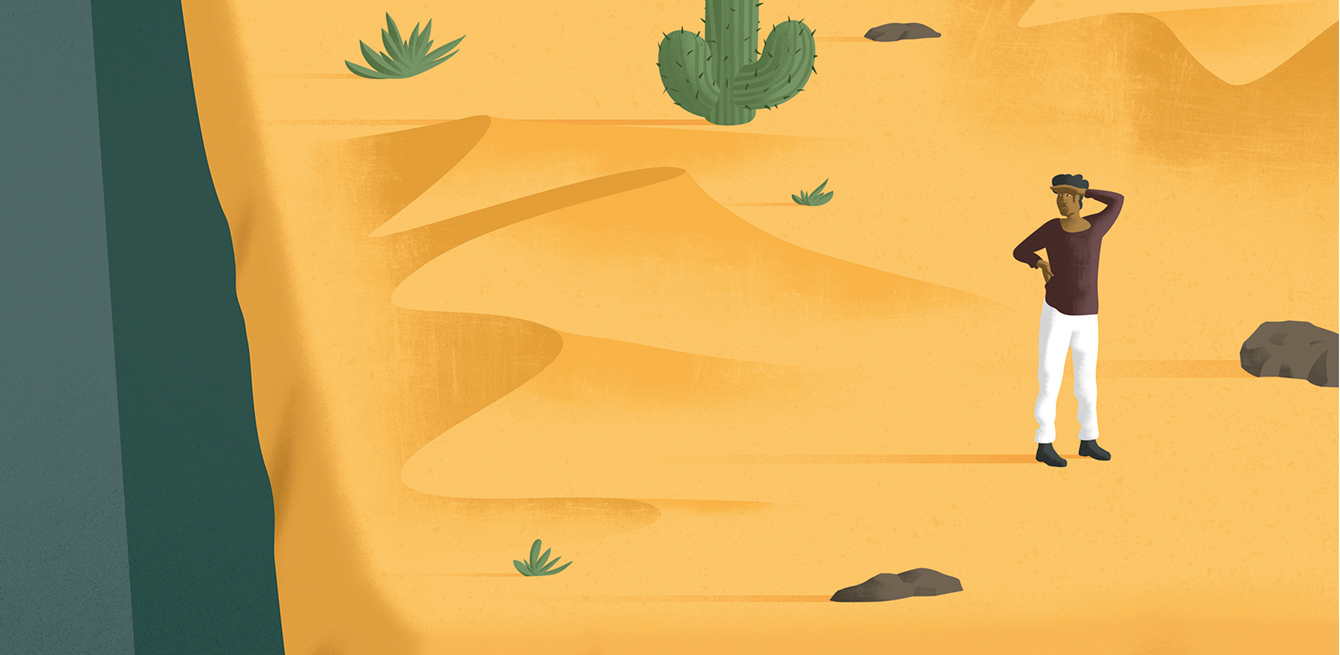
Sexual inactivity is on the rise in men aged under 30. The same trend, however – observed in the United States and Germany – does not appear to have affected women. A closer look.
Traditionally, sexual health specialists have worried about young people taking risks when it comes to sex, or being introduced to the concept of sexuality too early. But recently, several international studies have gone some way to reassuring them.
According to one American study, the number of young men who haven't had sex in a year has increased by around 60% since the year 2000. Nowadays, almost one in three men aged 18-24 are thought to be sexually inactive.
The same observation has been made in Germany, where in 2016, 20% of men aged 18-30 hadn't had sex in a year, compared to 7.5% in 2005. It appears, however, that the same cannot be said of women – or at least, not in the United States, where their rate of inactivity has remained stable at around 20%. According to Yara Barrense-Dias, a member of the Research Group on Adolescent Health at Unisanté in Lausanne, “this discrepancy could be down to the fact that young women have sex with men in other age groups”. Barrense-Dias also co-directed a study on sexuality in Swiss youths in 2017, where 6% of men aged 24-26 were shown as having little to no interest in sex. “And, as the last study looking specifically at young people’s sexuality in Switzerland was back in 1995 and based on extremely heteronormative criteria, we don’t have the benefit of historical hindsight,” she says.
One of the theories put forward by American researchers to explain this ebb in sexual relations is a growing number of singletons. “What we’re basically seeing is that people in stable relationships have sex more often,” Barrense-Dias confirms. A relationship, then, still seems to be a special space for partners to express their sexuality – whilst if you’re single, a butt pic these days is only ever a click away. “At work, I see plenty of people advocating relationship anarchy, but I get the impression that the romantic fairy-tale of finding your one true love is still alive and well,” confirms Zoé Blanc-Scuderi, a sex therapist and director of specialist intimacy centre Sexopraxis.
She believes that this idea of a “one true love” is likely to be thwarted by the uncertainties we face in the modern world, combined with the difficulty of looking to the future, and so seeing ourselves in a relationship. What is more, the American authors observed an increase in cases of depression and anxiety in adolescents and young adults, which may explain their lower libido. Men experiencing financial instability are also less sexually active.
Young people are discovering sexuality in a much less regimented world than previous generations, too. “With the new wave of feminism, gender roles being redefined
and people moving away from the concept of heterosexuality being the norm, men no longer have to prove their masculinity by sleeping with as many partners as they can – and these changes can also lead to insecurities,” Blanc-Scuderi tells us.
Add to that the switch to online dating, which can actually amplify inequalities when it comes to meeting people. Typically, the Tinder algorithm promotes successful profiles to the detriment of others. “Apps therefore imply that people will “match” more with certain individuals – ones that are attractive, rich, educated, white, and so on,” says Barrense-Dias.
Although our understanding of sexuality has improved considerably, the cited studies are limited in that they reduce it to penetration. “One possible scenario sees sexuality as a more individual choice, with access to pornography giving people greater freedoms. That kind of thing can help people get to know themselves and work out what they like, so they can feel fulfilled in their sexuality later on,” Barrense-Dias suggests. She also says that school-related stress could play a factor, as could young people living with their parents for longer during further education. Asexuality (see inset), which refers to a long-term absence of any need to engage in sexual relations, is only recorded as being the case for 1% of the global population. It would appear then, that we should be looking even more closely at living conditions and the evolution of sexual practices – whether enjoyed differently, by proxy, or later in life – to solve the mystery of this perceived sexual restraint. /
2020 was not a good year for sex – and 2021 doesn't look set to be much better, with the last few months seeing multiple lockdowns and social distancing measures imposed. “Just as in other areas of life, the internet has played an increasingly prominent role in sexual relations,” observes sexologist Yara Barrense-Dias. “Sexting has also seen plenty of action. But after matching someone on Tinder, what exactly do you do if you're in lockdown?” We don't have to wait long to find out: the Unisanté researcher is currently carrying out a study on adolescents’ experiences of life in lockdown.
Lou*, 18, has never had sex. He describes himself as an aromantic asexual: he feels no attraction, either sexually or emotionally. He does, however, have a “partner”, who he met a few months ago at a youth group run by a sexual diversity organisation, who he likens his relationship with to a “special friendship”. Lou approaches sex and emotions through an intellectual lens: “I like things to be straightforward: I need to be able to label behaviours”. When he was 15, he found a YouTube video on asexuality which he felt described his situation perfectly. “As sexual preferences are established during adolescence, I doubt mine will have changed,” he says. A lover of science, game design and model making, he considers his needs met.
*Not his real name